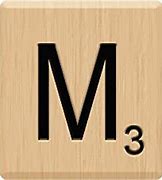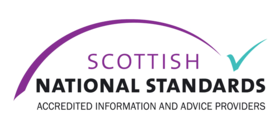M is for Mortgage to Rent and Mortgage to Shared Equity
Date published: 9th December 2020 ortgage to Rent (MTR) and Mortgage to Shared Equity (MTSE)
ortgage to Rent (MTR) and Mortgage to Shared Equity (MTSE)
MTR and MTSE are Scottish Government schemes which may be able to provide some assistance to homeowners who could be facing repossession as a result of mortgage arrears. Both schemes have a number of qualifying factors before they can be considered or accessed.
Mortgage to Rent allows the owner to sell their property to a social landlord, such as a Local Authority or Housing Association, and to then become a tenant of that landlord, with all the tenant protections any other Local Authority or Housing Association tenant would have. There is also a scheme called the Mortgage to Rent End of Term scheme currently running for homeowners with an interest only mortgage where the mortgage term has come to an end and the homeowner does not have a vehicle in place to repay the principal sum outstanding.
Mortgage to Shared Equity allows homeowners to sell a stake of up to 30% in the property to the Scottish Government, meaning the owner can then reduce their mortgage. Ownership of the property, as well as responsibility for it in terms of maintenance and insurance, remains with the homeowner. No payments are required to be made from the homeowner to the Scottish Government. The overall result is that the homeowner can reduce the level of debt secured over the property. Homeowners can buy back the share from the Scottish Government after two years. If a homeowner sells a property which is under the Mortgage to Shared Equity scheme the Government will recover its equity share from the sale price.
For Mortgage to Rent and Mortgage to Shared Equity schemes, homeowners must have been unable to make full payments to their mortgage for at least 3 months, and have total cumulative arrears of at least one month. The homeowner must have been unable to come to an agreement with the mortgage provider on how to deal with the arrears or, for Mortgage to Rent, have been granted a Trust Deed or been made bankrupt and the Trustee is attempting to force sale of the property.
Homeowners cannot be liable for assistance through Support for Mortgage Interest scheme or other UK Government support schemes – although this is not the case for the Mortgage to Rent End of Term scheme.
Some other factors which should be considered include:
- Mortgage to Shared Equity – does not release actual cash which could be used to clear arrears, although it does reduce the mortgage. This may allow homeowner to address arrears through smaller mortgage payments or to pay down the arrears. There are potential costs for conveyancing and legal costs for a solicitor. The property has to be within property valuation thresholds for area.
- Mortgage to Rent - may have costs to pay to ensure the property is up to acceptable repair standard, and there are limit on acceptable maximum costs for those repair can be. There are limits on how much equity clients on this scheme can keep from the sale of the property after all other factors have been accounted for. The limit for someone under 60 is £11,360, over 60 is £17,040 (2020/21). Any money above this will be returned to the Scottish Government, so may not be acceptable option for someone with large amount of equity in their property. Conversely, there may be a mortgage shortfall after sale of the property, where the sale of the property would not cover the total amount of the mortgage, the arrears and any other secured debts. Mortgage to Rent process would not be able to proceed without written confirmation from the lender of the agreement to accept the shortfall.
- Mortgage to Rent End Of Term: Homeowner must demonstrate they have no way to pay off the principal sum and that the lender is seeking to start repossession proceedings through court, and that they have received independent financial advice to look at all available options. They must also fulfil all of the requirements for the MTR scheme. Additionally, homeowner must hold 20% or more equity in their home, and the owner must not have been granted a Trust Deed or be sequestrated.
- Both Mortgage to Rent schemes depend on there being social landlords who are willing and able to purchase properties.
In order to apply for any of the schemes a homeowner must have received independent advice about their financial situation, which could be from a Citizens Advice Bureau. Confirmation of this advice must be provided by the adviser, and applications must be submitted by the adviser on behalf of the homeowner.






